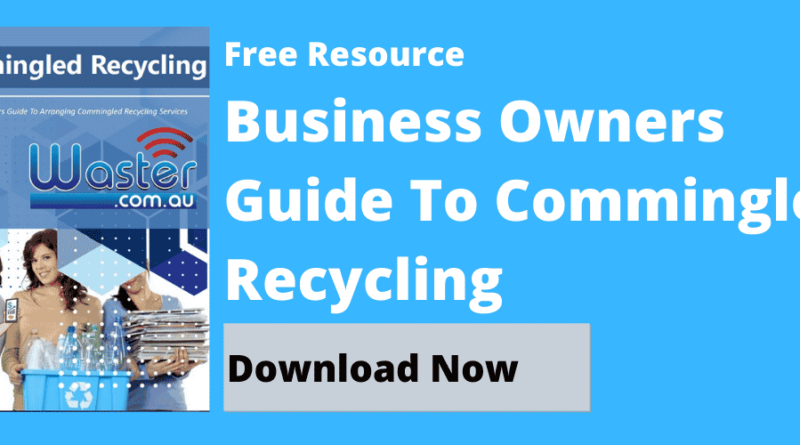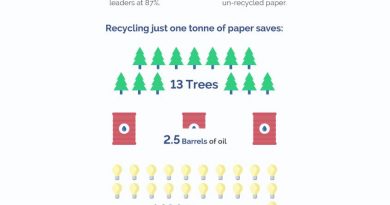As A Consumer, Do You Really Have To Pay For Recycling? ♻️
Energy Disrupter
Do You Have To Pay For Recycling? ♻️: Are you willing to shell out a couple of dollars – or more – to ensure the recycling of the items you intend to dispose of?
No one would argue with me when I say that we have a big plastic waste problem today. Most people nowadays are aware of this ongoing issue, with them advocating for brands to ditch the excessive plastic they wrap their products around and move to use more sustainable packaging.
Fortunately, a lot of brands and businesses have already complied with people’s requests, changing their ways and implementing sustainable practices within their core. However, what not a lot of people thought about is the price increase of products, as well as the added certain ‘fees’ to recycle end-of-life products.
One would automatically assume that people would convincingly disapprove of the price increase and extra costs it takes to recycle. But, is that really the case?
Below, we talk bout whether or not you have to pay extra – or even pay at all – for recycling. We will also cover other interesting topics such as why we have to pay for recycling and debating whether or not paying to recycle is worth it or not.
>Download Now: Free PDF Business Owners Guide To Commingled Recycling Bin Services
Yes or no: do you have to pay for recycling?
The answer here is both yes and no.
You can find free recycling programs with provided bins or drop-off points you do not have to pay for here in Australia if you actively search for them. For example, some supermarkets such as ALDI, Coles and Woolworths have dedicated bins where you can dispose of and recycle your plastic bags, courtesy of the Soft Plastics Taskforce, when you enter their stores.
Curby is also a good example of a free program that you can take advantage of to recycle your soft plastic waste. Basically, you can download their app and register there. Next, you will be provided with a yellow bag in which you can put your soft plastic waste and have it collected for recycling.
Why does it cost money to recycle?
Now, you might ask, “Why do I need to pay for recycling if I can use these free programs instead?”
Unfortunately, these free recycling programs do not accept all types of items. You might have items that are hard to transport and recycle that need professional services, which come with a price. Here are some examples of scenarios where you have to pay for recycling:
- Specialised Recycling: For items like mattresses, large appliances or hazardous waste, recycling often comes with a fee to cover processing costs.
- Recycling Fees: Some regions include fees at the point of purchase (e.g., e-waste recycling fees) to fund proper disposal later.
- Subscription Recycling Programs: Services like TerraCycle or eco-packaging schemes often require a subscription or one-time fee to recycle niche items.
So, depending on whether you want to pay for recycling or not, you have to consider your options carefully and do some research to get your waste moving!
The reasons why you have to pay for recycling
“Wouldn’t you want to increase recycling? Then, why does recycling have to cost money?”
Recycling costs money because it involves complex processes and specialised infrastructure to collect, sort, clean and repurpose waste into usable materials. Each step requires labour, energy and technology, adding to the overall expense.
For example, plastics must be sorted by type and colour before being shredded, washed, melted and reformed. Contamination, such as food residues, further complicates this process, increasing costs. Similarly, recycling electronics requires careful extraction of valuable materials like metals while safely disposing of hazardous components.
Another factor is market demand. If there’s a surplus of recyclable materials and low demand for recycled products, processors may struggle to cover costs. This often happens with certain plastics or glass, where producing virgin materials is cheaper than recycling.
Additionally, transportation is a significant cost driver. Recycling facilities are often far from collection points, requiring logistics investments. Local councils or companies running recycling programs may pass these costs to consumers through fees or product pricing.
Despite these costs, recycling remains critical for reducing landfill waste, conserving resources and mitigating environmental damage. Paying for recycling supports innovation and infrastructure to handle waste sustainably, creating long-term benefits for both the environment and the economy.
Now, is recycling worth it if it costs money?
Yes, recycling is still worth it, even if you have to pay for it, simply because its long-term benefits far outweigh the immediate financial burden.
Recycling helps conserve natural resources by reducing the need for raw material extraction, such as mining or deforestation, which preserves ecosystems and biodiversity. It also saves significant amounts of energy compared to producing goods from virgin materials; for instance, recycling aluminium uses up to 95% less energy than mining and refining new aluminium.
By diverting waste from landfills, recycling decreases methane emissions and helps prevent environmental pollution while extending landfill lifespans. Beyond environmental advantages, recycling also drives economic benefits by creating jobs in collection, processing and manufacturing.
It fosters innovation, encouraging the development of technologies and markets for recycled products, which supports a circular economy. Moreover, paying for recycling can instil a sense of responsibility in consumers, promoting more sustainable consumption habits.
Whilst it may seem costly upfront, neglecting recycling leads to greater long-term expenses through environmental degradation, resource scarcity and public health impacts. Investing in recycling today ensures a cleaner, healthier and more sustainable future for everyone.
Final thoughts: would you pay for recycling?
Paying to recycle is a necessary step toward a more sustainable future. Whilst it may feel like an extra burden to some, we believe that the cost reflects the effort required to manage waste responsibly and reduce environmental harm. It also signals a shift in how society values sustainability, encouraging individuals and businesses to share the responsibility for managing the resources they consume.
By paying for recycling, we invest in infrastructure, innovation and education that promote the circular economy, where materials are reused instead of wasted. This not only reduces landfill dependency but also conserves finite resources and minimises pollution.
However, it’s essential to balance costs to ensure accessibility for everyone. Governments, businesses and consumers must work together to make recycling systems efficient, transparent and affordable.
The ultimate goal should be a society where recycling is second nature and the benefits – environmental, economic and social – are shared equitably. Paying to recycle may not be ideal for everyone, but it’s a meaningful way to contribute to a cleaner, greener planet.
Contacting Waster
Looking for a specific bin service? Check out our waste recycling shop and find the best deals in terms of pricing and services.
Also, please call 1300 WASTER (1300 927 837), or email us at [email protected] if you have any further questions.

















